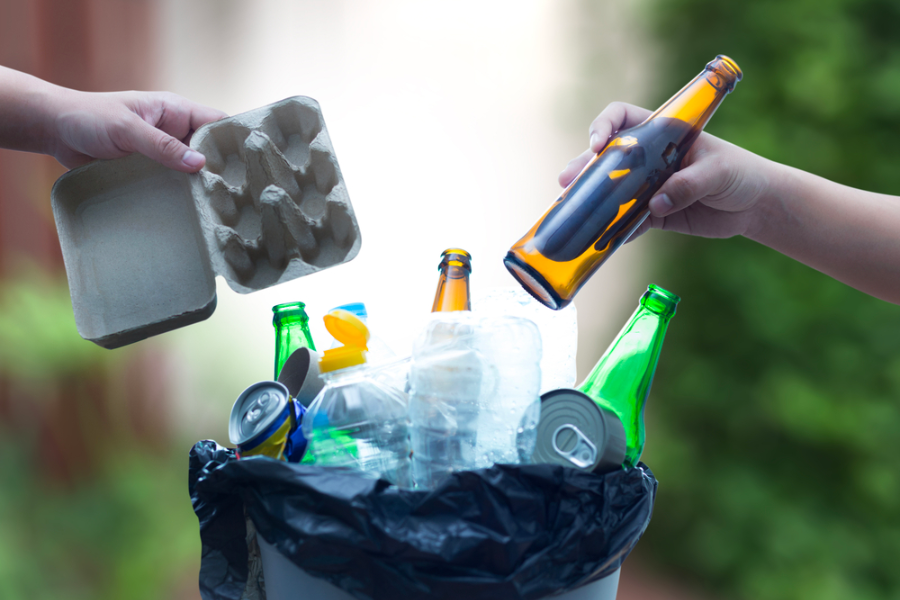University of Massachusetts Lowell
We are pleased to welcome University of Massachusetts Lowell as a new Supporting Advisory Member to the Northeast Recycling Council
The latest addition to NERC’s roster of Advisory Members from the world of academia is University of Massachusetts Lowell. Its Office of Sustainability, first opened in January 2015, “provides the UMass Lowell community with essential and centralized support services which integrate, communicate, and promote sustainable opportunities that contribute to the pursuit of carbon neutrality.”
The Office’s accomplishments are several:
- In 2021, UMass Lowell maintained its high ranking in Sierra magazine’s 15th annual Cool Schools ranking of North America’s greenest colleges and universities.
- In 2020, UMass Lowell was named “Innovator of the Year” at the Casella Sustainability Leadership Awards for the new and creative ways that the university sustains resources and diverts waste destined for landfills.
- In 2019, UMass Lowell was rated in the top schools for sustainability out of over 2,000 that The Princeton Review considered.
- Also in 2019, UMass Lowell was recognized as a top performer for its campus sustainability program in the AASHE’s 2019 Sustainable Campus Index.
In fact, UMass Lowell's initial sustainability efforts began in 1989 with the launch of a recycling program. The University’s well-developed Recycling & Waste Diversion programs reduce solid waste and increase recycling efforts across all corners of campus.
The programs’ notable successes include:
- A Zero-Sort Recycling Program provides occupants of personal office, lab and room trash receptacles with the means to separate their waste stream products (recyclable and non-recyclable).
- Battery and electronics drop-off boxes are located throughout the campus, where items are collected, sorted and securely recycled through trusted university vendors.
- Through the University’s partnership with Casella Waste Solutions and Casella Organics, a local composting facility was identified to accept food waste and create high-grade compost from it.
UMass Lowell uses a self-service request system called CAMIS to process and review specialized recycling work orders in a timely and efficient manner. Participants can access the system for:
- Pickup/disposal of electronics, furniture, toner and ink cartridges, light bulbs, computer accessories, small appliances, and other miscellaneous items
- Recycle or Shred Bin Replacements
- Other Environmental Health & Safety Requests
Another exciting development in the University’s sustainability efforts is its Innovation Hub, a co-working space offering work and laboratory space and access to office resources in the short term, rather than long-term, expensive business leases. Earlier in 2023, the Hub launched its inaugural Clean Green Challenge, a pitch contest for entrepreneurs and startups from across the region focused on sustainability. A UMass Lowell research team placed third out of five teams with a plan to develop technology that will help recycle battery materials such as lithium, nickel and cobalt more efficiently.
Assoc. Prof. of Management Scott Latham, who emceed the event, said, “You hear a lot about artificial intelligence, but by 2025, climate technology investments by corporations will be between $1.5 trillion to $2 trillion, while AI will be only $1 trillion. You can’t overstate how important this cluster is going to be for the commonwealth, and we’re playing a big role here at UMass Lowell.”
Assoc. Vice Chancellor Arlene Parquette added, “We’ve always had a thriving community of startup companies and innovators, but we’re really pivoting now and focusing our efforts on sustainability.”
NERC looks forward to fruitful collaborations with UMass Lowell, not only in its pivot to a sustainability focus at the Hub, but in the further development of sustainability-focused programs throughout the campus and beyond.
For more information about UMass Lowell click here
Share Post





